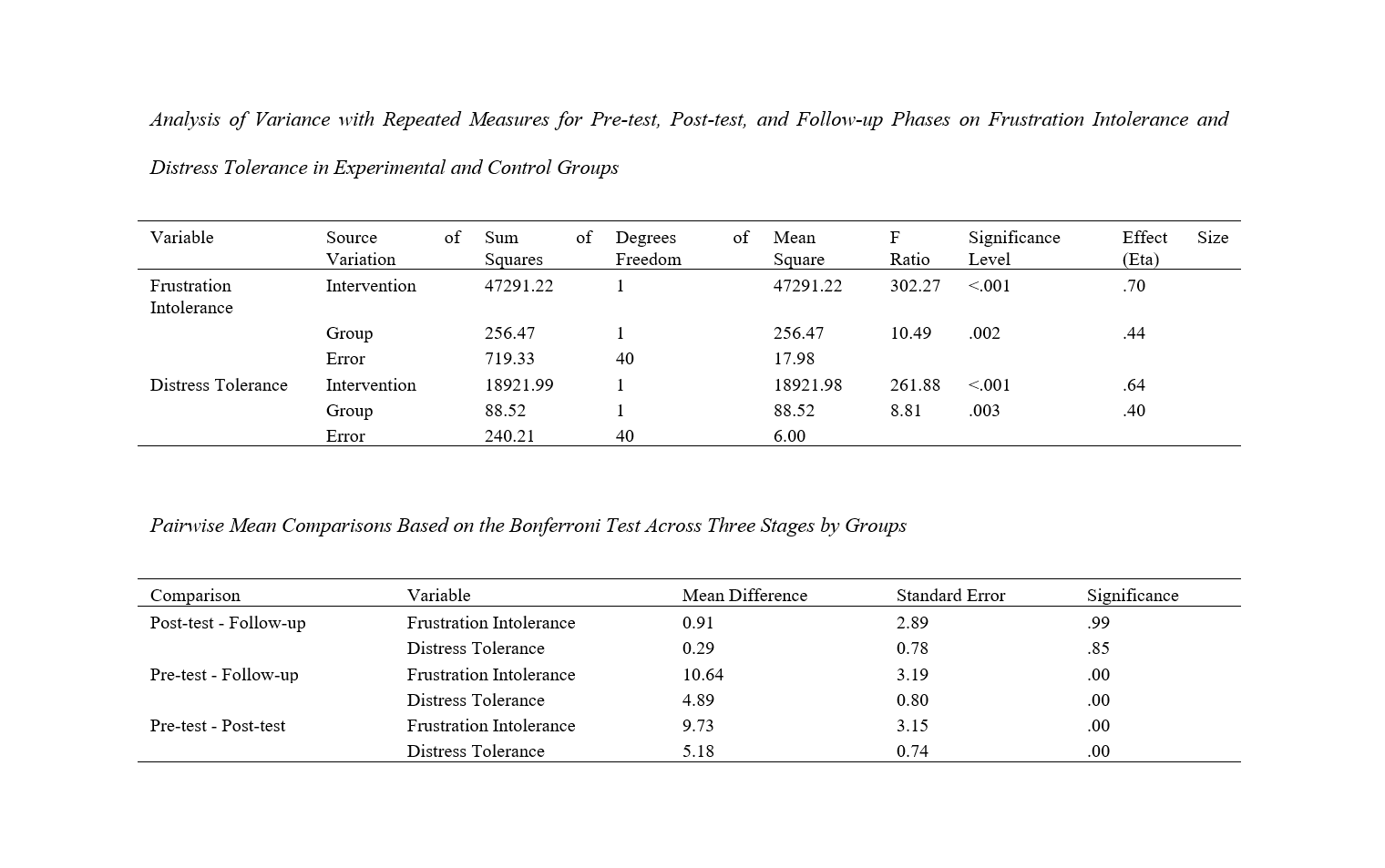Examining the Effect of a Strength-Based Approach on Distress Tolerance and Frustration Tolerance in Divorced Women
Keywords:
Strength-based approach, distress tolerance, frustration tolerance, divorced womenAbstract
Objective: Dealing with stress is one of the transformative changes that divorce introduces in personal and family lives, leading to the disruption of mental health, cognitive conflicts, and identity crises among women. Thus, the current study aimed to investigate the effectiveness of a strength-based approach on distress tolerance and frustration tolerance in divorced women.
Methods: The research was applied in nature and semi-experimental in design, featuring a pre-test and post-test with one experimental group and one control group, along with a two-month follow-up. Consequently, the study population consisted of all divorced women who visited counseling centers in District 6 of Tehran in 2022. From this population, 40 women were selected through purposive sampling and randomly assigned to an experimental group (20 participants) and a control group (20 participants). The experimental group underwent a strength-based approach program based on a protocol developed by Darbani and Parsakia (2022). Data collection tools included the Harrington Frustration Tolerance Questionnaire (2005) and the Simons and Gahr Distress Tolerance Questionnaire (2005). Descriptive statistics utilized frequency distribution tables, and inferential analysis was conducted using mixed ANOVA with repeated measures and Bonferroni post-hoc tests, employing SPSS software version 26.
Findings: Considering the F-values and significance levels in the mixed ANOVA for frustration tolerance (F = 10.49, p = 0.002) and distress tolerance (F = 8.81, p = 0.003), it can be concluded that the intervention employed in this study, namely the strength-based approach as an independent variable, significantly altered the dependent variables (frustration tolerance and distress tolerance).
Conclusion: Based on the findings, it can be concluded that the strength-based approach is effective in improving distress tolerance and frustration tolerance among divorced women. Therefore, techniques from this approach can be utilized in post-divorce counseling for divorced women.
Downloads

Downloads
Additional Files
Published
Issue
Section
License

This work is licensed under a Creative Commons Attribution-NonCommercial 4.0 International License.




















